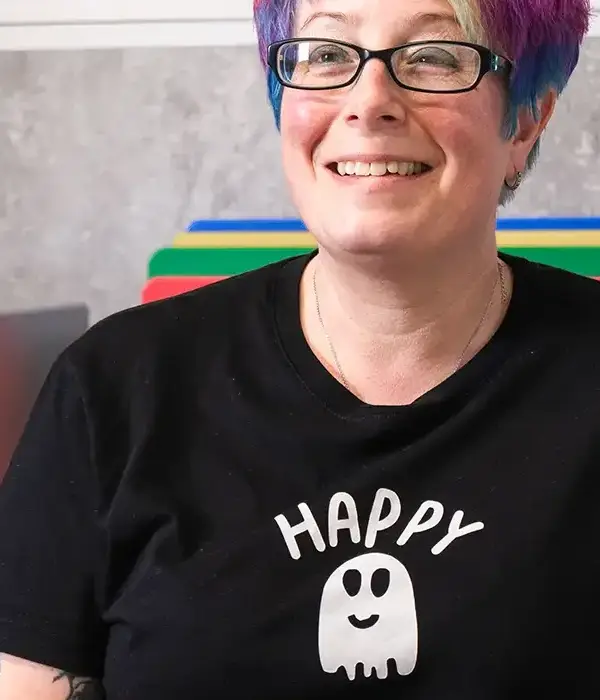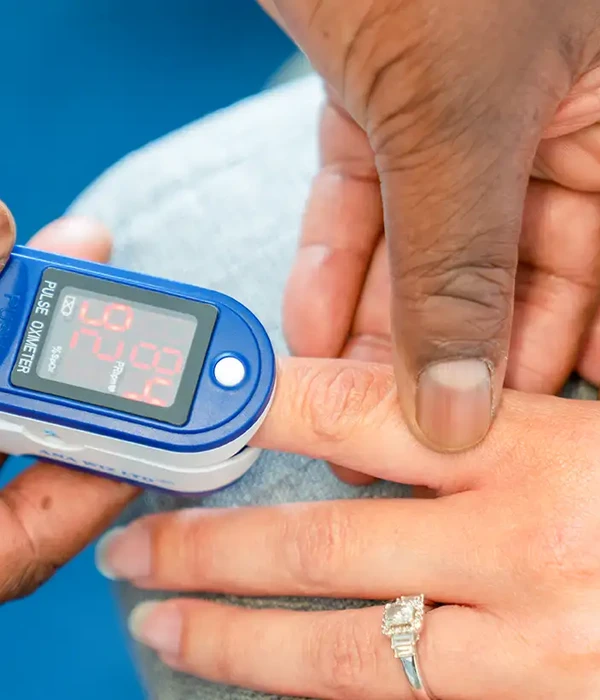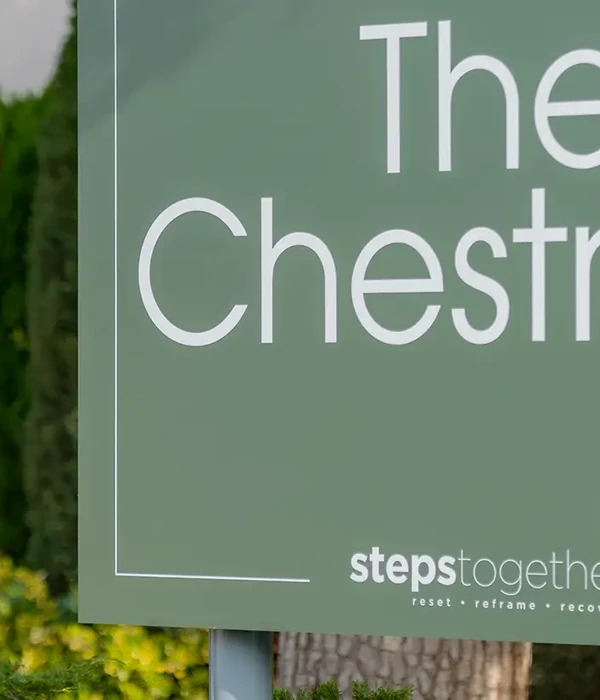Behavioural Health Treatment
When it comes to your overall well-being, behavioural health is just as important as physical health. Behavioural health treatment can help you address mental health challenges, which affect many people worldwide, and improve how you cope with stress and daily life.
If you or someone you know is struggling, understanding your treatment choices is a key component of the recovery process.. There are several effective therapies available, and you can learn more about the different approaches to treating behavioural health.

Take the First Step Towards Recovery
Steps Together offers personalised support and proven treatments, providing the care, guidance and encouragement you need to move forward with confidence and build a healthier future.

Understanding Behavioural Health Services
Behavioural health treatments focus on mental health problems and the ways your actions, beliefs, and feelings interact. These treatments help you recognise unhelpful patterns and work towards better mental wellbeing.
Treatment plans often focus on the most serious or disruptive symptoms. For example, cognitive behavioural therapy (CBT) is a common type of talking therapy for depression and anxiety, helping you build coping skills and change negative patterns.
Key Concepts in Behavioural Health
Behavioural health therapies cover conditions by focusing on how your actions influence your wellbeing. You will often hear about terms like reinforcement, modelling, and shaping. These are ways that therapists encourage positive behaviours and discourage those that are harmful or unhelpful.
Therapies might use rewards to encourage beneficial actions or practice new skills in real-life situations. Staying involved and taking an active role in your session is important for success. Modern approaches rely on proven techniques to help you make lasting changes, as found in behavioural therapy.


Behaviour, Thoughts, and Emotions
Your behaviour, thoughts, and emotions are deeply connected. Your thoughts can affect how you feel and act. For example, believing you will fail might make you anxious and lead you to avoid difficult tasks.
Therapies like CBT work by helping you understand this link. You will learn to spot harmful beliefs, challenge them, and change your response. This helps you manage emotions and take more positive actions.
Types of Behavioural Health Treatments
Behavioural health treatment programmes focus on helping you change negative patterns of thinking and behaviour. Different types of therapies use specific techniques to address anxiety, depression, addiction, and other mental health conditions.
Cognitive Behavioural Therapy
Cognitive behavioural therapy is one of the most widely used forms of psychotherapy. It helps you identify and challenge harmful thoughts that influence your feelings and actions. CBT is structured, goal-oriented, and usually short-term.
In CBT, you will work closely with your therapist to break down problems into smaller parts. Together, you explore how your thoughts, feelings, and behaviours are connected. Techniques often include keeping thought records, practising self-help skills, and doing homework outside the sessions.
Group Therapy
There are many other psychosocial treatments for mental health problems. These may include different types of psychotherapy, such as group therapy. These approaches help address emotional, social, or environmental factors that affect your mental well-being.
Group therapy can be a way to help you feel less isolated, as behavioural health conditions can often make it hard to socialise or form connections with other people. Additionally, group meetings can also offer support, encouragement, and accountability.
Dialectical Behavioural Therapy
Dialectical behaviour therapy (DBT) is a type of cognitive behavioural treatment designed for people who struggle with intense emotions. DBT was originally developed to treat borderline personality disorder, but it is now used for a range of conditions, including self-harm, eating disorders, and post-traumatic stress disorder.
DBT combines traditional behavioural therapy approaches with mindfulness and acceptance strategies. The main areas of focus are emotional regulation, distress tolerance, relationship skills, and mindfulness. You might attend group skills training, individual therapy sessions, and have coaching calls with your therapist as needed.
Family Therapy
Behavioural health issues can often disconnect you from your loved ones, and your symptoms can affect them as well. Many people who struggle with their mental health can find themselves isolated, either because they feel that their symptoms make them a burden or their condition takes the joy out of socialising.
Family therapy can help your loved ones learn more about your struggles and participate in your recovery. Additionally, these sessions can help your loved ones understand that your condition isn’t entirely in your control and help repair any damage your symptoms may have done to your relationships.
Services that our multi-speciality addiction rehabilitation centres offer
Love and Relationship Addiction Treatment
Love and Relationship Addiction Treatment

Treatment Planning and Techniques
Treatment planning for behavioural health involves a thorough assessment, setting clear goals, and using evidence-based strategies tailored to your specific needs. This process helps identify the challenges that you’re facing and outlines practical steps to support your recovery and growth.
A well-structured treatment plan can help address unhealthy thinking patterns, improve emotional regulation, and build healthy coping mechanisms. By focusing on your strengths and goals, personalised treatment planning can empower you to make lasting, positive changes.
Assessment and Recovery Planning
Assessing your needs is the first step. Mental health professionals will talk with you about your symptoms, including physical feelings and unhelpful thoughts, to understand what you are experiencing day to day. A thorough assessment includes your mental health history, current challenges, and resources that can help you.
Your treatment plan is personalised, with specific, achievable goals. The plan will outline target behaviours, helpful thoughts, and steps to stop maladaptive behaviours. It often includes interventions like cognitive behavioural therapy sessions, where you learn to replace unhelpful thoughts with more balanced ones.

How Mental Health Services are Delivered
A range of trained mental health professionals deliver behavioural healthcare, each with a specific role. Psychiatrists are medical doctors who focus on diagnosing and treating mental illnesses, often prescribing medication when needed. Psychologists provide talking therapies like cognitive behavioural therapy and work on assessment and treatment plans.
You can access behavioural health treatment in multiple settings. Many people use services provided by the NHS through primary care or specialist clinics. Hospitals and community mental health centres also offer support for people with more severe needs.
Behavioural health care is provided through several modes of delivery. The most common is face-to-face treatment, which includes counselling, therapy, and medical appointments at clinics or hospitals. Talking therapies like CBT, group therapy, and counselling are widely used to address a range of mental health challenges.
Mental Health Conditions Addressed by Talking Therapies
Effective behavioural health treatment helps you manage a range of mental health conditions and symptoms. Different types of therapies and support target specific problems like anxiety, mood changes, compulsive actions, and substance use.
Anxiety and Mood Disorders
Anxiety disorders affect many people and include generalised anxiety, panic disorder, social anxiety, and phobias. You might experience constant worry, sudden panic attacks, or intense fear in social situations. These can make everyday tasks difficult.
Mood disorders include depression and bipolar disorder. Depression often brings long periods of low mood, hopelessness, and loss of interest in activities. Bipolar disorder involves swings between deep lows and highs, potentially risky moods.
Substance Use Disorders
Substance use disorders refer to problems with alcohol or drug use that affect your health, work, or relationships. These disorders may include addiction, dependence, or misuse of substances like alcohol, nicotine, or prescriptions medicines.
Treatment focuses on helping you stop or reduce use and learn new coping skills. Therapy might also address related mental health issues like depression or anxiety. Support can include one-to-one counselling, group therapy, or medication.
Obsessive-Compulsive and Related Disorders
Obsessive-compulsive disorder is marked by repeated unwanted thoughts (obsessions) and actions (compulsions). You might feel driven to clean, check things, or repeat routines to ease anxiety.
Related conditions include body dysmorphic disorder and skin-picking disorder, where thoughts and actions become hard to control. Treatment usually involves talking therapies such as CBT, with a focus on exposure and response prevention.

Treat Your Behavioural Health Problems
Conditions like anxiety and depression can be debilitating, but there are treatments that can help you manage symptoms. Behavioural health treatment relies on evidence-based methods to support mental and emotional well-being.
Your GP can be a good place to find treatment and support, but support from Steps Together can offer you or your loved one a range of specialised types of treatment for a range of mental health disorders.
Frequently Asked Questions
What are the key techniques used in behavioural therapy?
Behavioural therapy uses methods like setting specific goals, monitoring progress, and reinforcing positive behaviours. Therapists help you challenge negative thought patterns and replace them with healthier, more positive alternatives. Other techniques include exposure therapy, roleplay, and skill-building exercises.
How is behavioural therapy adapted for children?
Therapists use play, drawing, and storytelling to help children express their thoughts and feelings. Instructions and interventions are kept simple, and parents or carers are often involved. The focus is on teaching children practical skills they can use in daily life, such as managing worries or improving social skills.
How does cognitive behavioural therapy differ from other forms of mental health treatment?
CBT focuses on the connection between thoughts, feelings, and behaviours. You work with your therapist to change harmful patterns efficiently, often with “homework” outside of sessions.
Can you provide examples of cognitive behavioural therapy in practice?
A common example of cognitive behavioural therapy is helping someone manage anxiety by identifying triggers and practising coping skills. For depression, you might learn to challenge and reframe negative thoughts, then take part in activities you previously enjoyed.
What benefits and limitations can be expected from behavioural therapy?
Behavioural therapy can reduce symptoms of conditions like anxiety, depression, and insomnia. It is often short-term and structured, with clear goals. Sometimes, progress takes time and continued practice. Not every problem or person will respond in the same way.
What constitutes an effective mental health treatment regimen?
An effective mental health treatment regimen involves clear goals, regular sessions, and reviewing progress with your therapist. Treatment usually includes a combination of behavioural techniques and may involve medication if needed. Follow-up and support outside of therapy, such as establishing self-care routines and accessing support networks, are also crucial.





